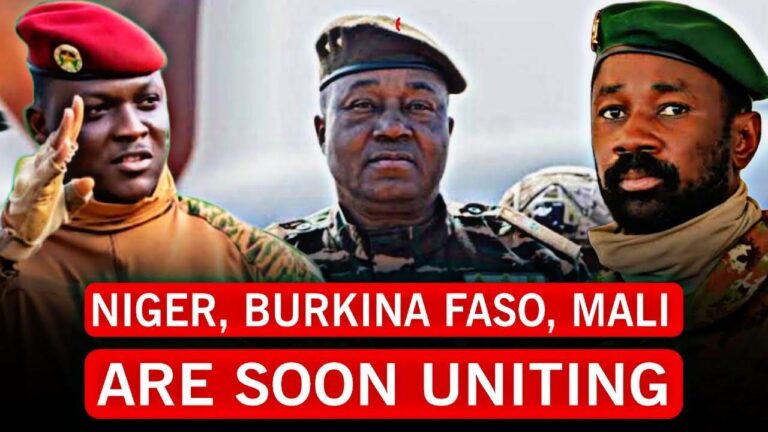
Ministers from Burkina Faso, Mali and Niger met in the Burkinabe capital on Thursday to discuss creating a confederation reports state.
The three anti-colonial governments formed a defence and economic pact, the Alliance of Sahel States (AES), in September.
Burkina’s Defence Minister General Kassoum Coulibaly said the talks in Ouagadougou were an opportunity to pursue the implementation of “instruments, mechanisms and procedures” and the “legal architecture for the confederation”.
The procedures will “allow our alliance and the confederation to function efficiently and to the great joy” of the three countries’ populations, his Niger counterpart General Salifou Modi said.
Foreign ministers of the three nations backed the creation of a confederation as part of a long-term goal of uniting the West African neighbours within a federation, at a meeting in December in the Malian capital Bamako.
Niger’s leader General Abdourahamane Tiani said on Sunday that the creation of a common currency with Burkina and Mali could be a “way out” of “colonization”.
The latest meeting comes just weeks after Burkina, Mali and Niger announced their exit from the Economic Community of West African States (ECOWAS).
All three were founding members of the regional bloc in 1975 but had been suspended following military coups that overthrew elected civilian governments.
The three countries have faced ongoing jihadist violence and have experienced military coups since 2020.
Their new leaders have also accused former colonial power France of instrumentalising ECOWAS. They have pushed out French ambassadors and forces out of the country while attempting to forge a new independent path.
The ECOWAS “withdrawal provides us with an opportunity to achieve real fraternity… without any outside interference or manipulation,” said Mali’s Minister of Territorial Administration and Decentralisation Colonel Abdoulaye Maiga.
Coulibaly added that ECOWAS “has turned away from its main objective of serving the people”.
“Our decision to withdraw is irreversible,” he said.
The coming months will determine whether the situation has authentic anti-colonial roots. Burkina Faso, for instance, has brought back officials who worked in revolutionary leader Thomas Sankara’s government.
But with a lack of notable revolutionary organizations in the country combined with the long effects of colonial devastation destroying civil society, and the ongoing war with Salafist insurgents that have left the countries in havoc, the political direction remains vague still.